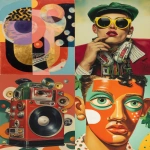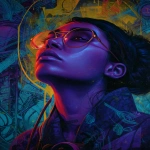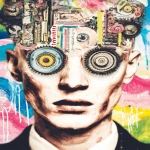Explore the Best AI Image Gallery

AI-Generated Media: A Creative Revolution or Ethical Minefield?
Artificial intelligence (AI) is rapidly transforming numerous industries, and the creative sector is no exception. AI-generated media, encompassing everything from text and images to music and video, is pushing the boundaries of whats possible, sparking both excitement and apprehension. This new frontier presents a myriad of opportunities for artists, creators, and businesses, but it also raises profound ethical questions that demand careful consideration.
The Transformative Potential of AI-Generated Media
AI algorithms can now generate stunningly realistic and creative content, often surpassing human capabilities in speed and scale. This opens up a world of possibilities:
- Democratization of Creativity: AI tools empower individuals with limited technical skills to create professional-quality content, fostering inclusivity and accessibility in the creative process.
- Enhanced Efficiency: AI can automate repetitive tasks, freeing up artists and designers to focus on higher-level creative endeavors.
- Novel Artistic Expressions: AI algorithms can explore unconventional concepts and aesthetics, pushing the boundaries of artistic innovation.
Applications Across Industries
The impact of AI-generated media is already being felt across diverse sectors:
- Marketing and Advertising: Personalized content, dynamic visuals, and interactive experiences are transforming marketing campaigns.
- Entertainment: AI is used to create realistic special effects in films and video games, generate music for different genres, and even write scripts for movies and TV shows.
- Education: Interactive learning experiences powered by AI can personalize education and make it more engaging for students.
- Design and Architecture: AI tools assist in generating design concepts, optimizing layouts, and creating 3D models.
Ethical Considerations: Navigating the Uncharted Territory
The immense potential of AI-generated media comes with significant ethical challenges that require careful consideration:
- Copyright and Ownership: Who owns the copyright to AI-generated content? The creator who provided the input, the developer of the AI algorithm, or the AI itself?
- Bias and Discrimination: AI algorithms are trained on massive datasets, which can reflect existing societal biases. This can result in AI-generated content perpetuating harmful stereotypes and discrimination.
- Misinformation and Deepfakes: The ability to generate realistic fake media raises concerns about the spread of misinformation and the erosion of trust in information sources.
- Job Displacement: As AI automates creative tasks, there are concerns about potential job losses for human artists and designers.
Shaping a Responsible Future for AI-Generated Media
Addressing these ethical challenges is crucial to ensure that AI-generated media benefits society as a whole. Several steps can be taken:
- Develop Ethical Guidelines and Regulations: Governments and industry bodies should collaborate to establish clear guidelines and regulations for the development and deployment of AI-generated media.
- Promote Transparency and Accountability: Its important to make it clear when content has been generated by AI, allowing users to make informed decisions about the information they consume.
- Address Bias in AI Training Data: Researchers and developers need to actively work on mitigating bias in AI training datasets to ensure that AI-generated content is fair and equitable.
- Foster Collaboration and Dialogue: Open conversations between artists, technologists, policymakers, and the general public are essential to navigate the ethical complexities of AI-generated media.
The rise of AI-generated media presents both exciting opportunities and significant challenges. By embracing a responsible and ethical approach, we can harness the transformative power of AI to foster creativity, innovation, and societal progress.
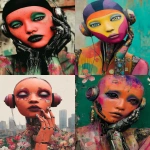
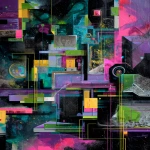

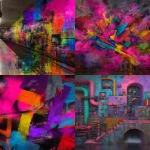
](https://images.ai-img.art/thumbnails/150/1aa8215ea9a4f6970e81a10bdb4feb3b08d5e1a202c3c7ed2c9380f2f63d5a74.webp)



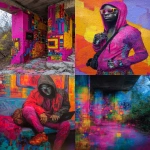

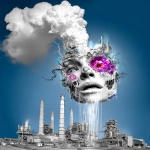

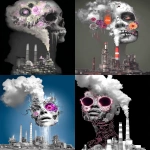
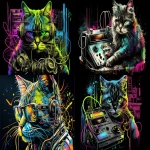








](https://images.ai-img.art/thumbnails/150/33d5e6d1da2b8ec2c4b8eab20d051c27c26d7a4991a77faf06fd03e96617fb1e.webp)
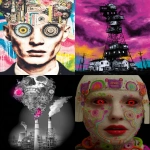
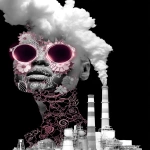


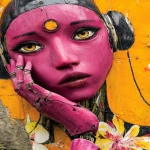

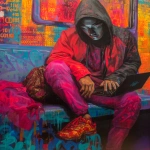


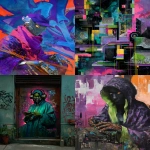


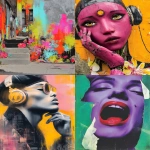

](https://images.ai-img.art/thumbnails/150/664a559b73eaff070d6f7fc7b3b151718aef9fa3a3f12f90b3c9092ceaa3cb56.webp)

